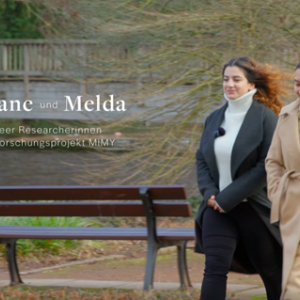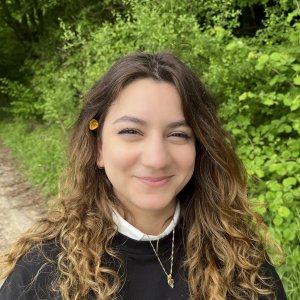As part of the MIMY project, we (Efsane and Melda) were involved in conducting focus groups. In these focus groups, participants had the opportunity to exchange ideas and possibly further their education. The participants were people whose parents immigrated to Germany as “guest workers” in the 1970s. Thus, like us, the participants grew up in Germany. This blog entry will focus on the different perspectives of the interviewees and ours as the third generation.
Melda In the first focus group, it was noticeable that participants said that their parents did not know German culture and therefore the children experienced deficits in society. They see the state as culpable for such situations because they felt left alone by the state. For example, one woman said that she was the only one who did not have a school cone when she started school because her parents did not know about it. She still mourns this today as she felt very marginalised as a result.
Efsane In one of the focus groups, a woman told about her arrival in Germany. She remembered how warmly the people and neighbours treated her and how she felt welcome. Although she immigrated without any knowledge of German, she was able to learn the language quickly. Today she works with refugees and describes how refugees have it harder these days. She said that people in Germany have a certain basic dislike towards refugees. She also suggests offering more language opportunities, especially at school.
Melda & Efsane By attending the focus groups and listening to the perspective of the older generations, who are the same age as our parents, we were able to learn a lot. Neither of us ever had a conversation with our parents about how they arrived and grew up in Germany. That was never an issue. Thanks to the stories told by the group participants, we were able to understand our parents' growing up in Germany much better. Thus, we were able to expand our empathy and understanding towards our parents and the interviewees.
In one focus group, one participant said: "The third generation has it easier!” This refers to us. We consider this statement questionable. The participants did not grow up in our generation, nor did we in theirs. Therefore, it is difficult to evaluate and compare individual experiences. The participants report a lack of education in German culture and racism, whereas we, for example, still have to struggle with racism or being different. However, we grew up with the German culture much more and had it much easier with language and education because we experienced them from an early age. Our conclusion is that the generations complement each other. We also think that we as the new generation should show more understanding and support towards the older generations.



